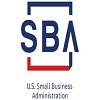Know the process through which an OTC drug undergoes before it is made available in the market
11/05/2019
Category: Other Blogs
The food, drug and Cosmetic Act (FDC) were started in the year 1938, and it also allowed that the medical products that are believed to be marketed before 1938 and can continue in the market as it was till now available with low standards of safety evidence. However, very soon Kefauver Harris amendments were made to the standards and were introduced in the FDC act according to which all prescription drugs should be very well examined to prove that they are safe and efficient. In the year 1972, it was also announced by the FDA that from that point onwards it will be examining the OTC drug products for their safety and efficiency check and this way the OTC review process emerged. Drugs FDA is also maintained to ensure that the drugs available in the market can be consumed and they will do well to the human body instead of causing harm.
What is the new review process?
There are 3 phases involved in the review process that resulted in the establishment of the standards which are referred to as drug monographs for each OTC class available. Over 80 non-prescription drugs classes are available including antacids, cough medications, antidiarrheals, etc. and it is also important that each class should have its own OTC drug monograph. There are three phases involved in the processes which are briefly described below:
In the first phase, the panel must review the ingredients that are active in the proposed drug, this helps to determine whether the drug is safe for human consumption and also effective. They also cross-check the claims done by the manufacturing department regarding labeling, indications, dosage, side effects, etc. The final decision of the panel is then published in the Federal Register as advanced notice of rulemaking that was already proposed. The ingredients are classified into three categories by the panel.
After the categorization procedure, FDA reviews the ingredients that are active in each class of drugs based on the reviews given by the panel and any new data available regarding it. The results are then recorded in a register by the agency.
After the completion of the first two steps, final phase comes into action. In this phase, drug monographs are prepared in which the final regulations are published, the monographs are similar to that of a recipe book that comprises of the dosage of drugs, accepted ingredients, labeling, formulations, etc. It might contain some ingredients that are not mentioned in the monograph and those constituents must be reviewed by the New Drug Application.
The procedures carried out may come under FDA OTC drugs consulting services where the drug is fully tested to make sure that it is safe for oral consumption by humans.
OTC drug monograph process
It should be kept in mind that the monograph cannot be co considered as a pre-market approval. Instead, a monograph is a report which is prepared by the agency to identify dome specific requirements for different classes of a drug product. Scientific personnel help DNDP to review the list of active ingredients in the proposed OTC drug. To carry out the review process smoothly data from a medical officer or pharmacologist are also taken into consideration. DNDP is the primary reviewer, but some reviews from the various divisions of the Office of New Drug may also be taken into consideration in some cases. After successful compliance of the product with the defined regulations and standards laid by the OTC drug monograph, a thumbs-up is given to the manufacturer to proceed with the marketing of the planned drug. The drug may be a biotech drug or pharmaceutical.
Situations may arise where the drug proposed is not able to comply with the set regulations and there are some discrepancies noticed, then the process doesn’t stop. Instead, the drug is transferred to the second round of in-depth review process to figure out the drawback due to which it was not able to pass the test. It is transferred to the NDA process for review. The review process of an OTC drug may seem simple initially, the Regulatory conditions vary greatly for different cases according to the range of monographs provided. It the review is passed on to the NDA by the OTC officer then it is considered as a tough case that requires proper assistance and guidance.
tagging: biotech drug > Drugs FDA > fda over the counter


